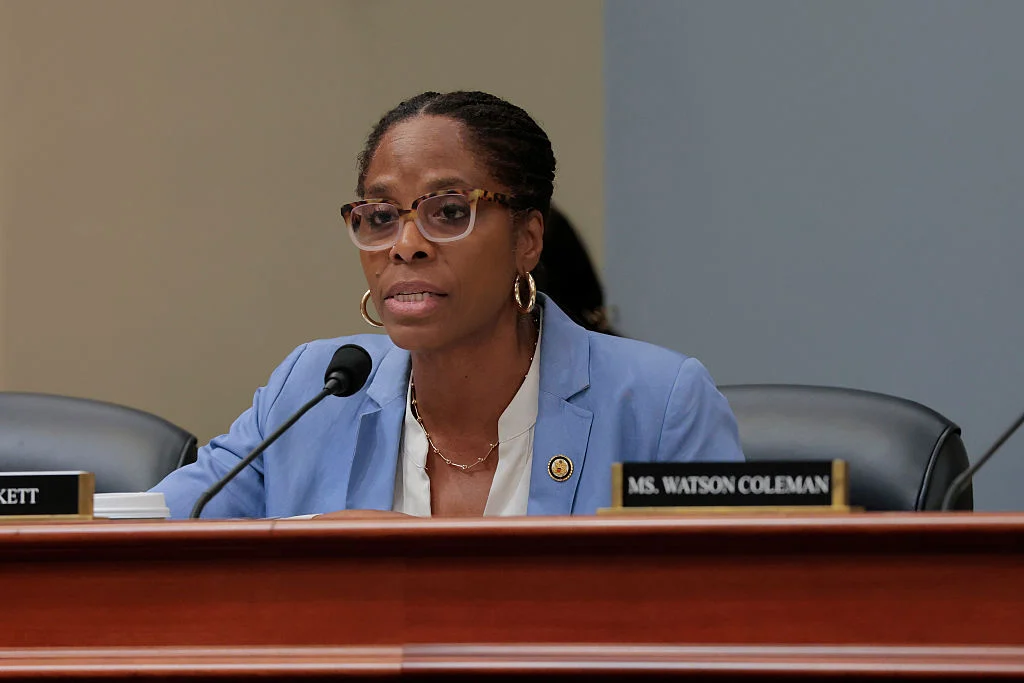A recent vote in the U.S. House of Representatives has brought significant attention to Democratic Congresswoman Stacey Plaskett, who represents the U.S. Virgin Islands. On Tuesday, a Republican-led resolution aimed at removing her from the House Permanent Select Committee on Intelligence failed to pass, indicating a division in Congress over both the accusations made against Plaskett and the political motivations behind them.
The controversy ignited primarily from accusations against Plaskett regarding her alleged “inappropriate coordination” with convicted sex offender Jeffrey Epstein during a 2019 hearing that focused on President Donald Trump’s conduct. Although these claims lacked supporting evidence, they gained traction after a Washington Post report highlighted the timing of text exchanges between Epstein and another member of Congress, which coincided with Plaskett’s questioning of Trump’s former attorney, Michael Cohen.
While some Republican representatives seized on the situation to call for Plaskett’s censure, her office clarified that her communication with Epstein was part of a broader effort to uncover critical information related to Trump’s alleged cover-up of his affair with adult film actress Stormy Daniels. Plaskett stated that she was merely gathering information as part of her responsibilities, openly challenging the GOP’s framing of the issue.
On Tuesday, the House took a significant step by approving a bill that demands the full release of the Epstein files, which has renewed debates on transparency and accountability in political oversight. In light of this legislative action, Republican Congressman Ralph Norman proposed a motion to censure Plaskett, accusing her of hypocrisy in her public persona as a defender of justice while allegedly collaborating with someone whose actions have been widely condemned.
In her defense, Plaskett asserted that Epstein was one of her constituents, and at the time of their communication, his nefarious activities were not public knowledge. She insisted that the context and nature of their exchanges were misconstrued, emphasizing that her focus was on obtaining the truth about critical issues affecting her constituents and the nation. Plaskett argued that her questioning tactics were not influenced by Epstein and highlighted her extensive legal background as a former prosecutor.
“Let me tell you something. I don’t need to get advice on how to question anybody from any individual. I have been a lawyer for 30 years,” Plaskett stated defiantly, reinforcing her professional credentials. She detailed her experience as a narcotics prosecutor and a political appointee in the Justice Department, emphasizing her capability to seek information independently.
Moreover, she turned the scrutiny back on her critics, questioning the frequency of their communications with a convicted felon, referencing Trump’s own legal issues. This rhetorical strategy sought to highlight what she views as a disparity in the scrutiny placed on her versus that on her political adversaries.
The Congressional Black Caucus joined the fray, condemning the failed motion to censure Plaskett as a politically motivated attack aimed at distracting the public from President Trump’s connection to the Epstein scandal. In a statement, they characterized the censure as a partisan maneuver devoid of factual grounding, asserting that Plaskett has consistently fought for survivors and demanded accountability within the political sphere.
As this debate continues to unfold, the tensions between the parties surrounding Plaskett’s actions and the broader implications for accountability in Congress become increasingly pronounced. The dynamics around the censure motion reflect deeper issues within U.S. politics, including questions of power, trust, and the pursuit of truth in governance.



